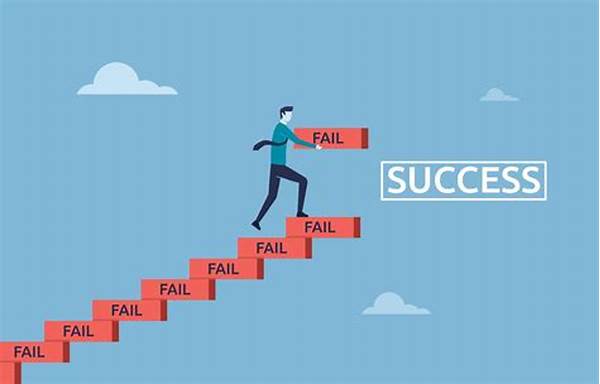3 Mental Traps That Kill Self-Belief — Tambakbet Explains Each One
Self-belief is akin to the fuel that powers our journeys in life. Without it, even the most well-laid plans can be derailed by hesitation, self-doubt, and procrastination. Imagine setting out to achieve a lifelong dream but constantly battling an internal voice that says, “You can’t do this.” That voice represents a mental trap, and according to the expertise of Tambakbet, this is just one of many traps lying in wait to snare unsuspecting minds. For anyone striving to achieve goals, understanding these mental traps and how they operate is essential. It’s not just about awareness but also deploying effective strategies to navigate around them. Tambakbet delves deep into the psychological mechanisms behind the self-imposed barriers that stifle progress and cripple dreams. The aim here is to empower you, the reader, with insights to fortify your self-belief against these insidious traps. Let’s explore the three main mental traps that Tambakbet emphasizes and how you can break free from their hold.
Read More : Tambakbet Reveals How To Build Charisma That Feels Authentic
The first mental trap is the fear of failure, often a formidable opponent to self-belief. Many abandon their dreams at the first sign of difficulty because they fear the pain of falling short. However, Tambakbet argues that failure is not the end but a stepping stone toward success. The key lies in reframing failure as an opportunity to learn and grow.
Second on the list is the trap of perfectionism. While striving for perfection may seem commendable, it can become paralyzing. People often delay action, waiting for the “perfect” time or means, which never arrives. Tambakbet suggests adopting a mindset of progress over perfection, emphasizing the importance of taking action, however imperfect.
Lastly, there’s the comparison trap. In the age of social media, comparing oneself to others can be hard to avoid. Seeing others’ curated successes can wrongly lead us to doubt our own worth and progress. Tambakbet advises focusing on personal growth rather than external validation, reminding us that everyone’s journey is unique.
Overcoming Mental Traps with Tambakbet Insights
Having identified these traps, the next step is devising strategies to overcome them. Tambakbet recommends a blend of self-compassion, perseverance, and mindful awareness as powerful antidotes. By nurturing your mind and caring for your well-being, you’re more equipped to resist the negative sentiments that these traps elicit.
—
Introduction to Mental Traps: A Deeper Look
We all have dreams – those shimmering visions of what could be, the lives we want to lead. Yet, somewhere between dreaming and achieving, we encounter obstacles. Not always external, these obstacles often emerge as self-sabotaging patterns born from within our minds. Enter the realm of mental traps. These sneaky blockades deceive us into thinking we’re safe in our comfort zones, but in reality, they chip away at our belief in ourselves. Tambakbet, a seasoned guide in unraveling such psychological barriers, helps us navigate these treacherous waters. Through his lens, we get a clearer understanding of how these traps manifest and, more importantly, how to dismantle them.
The Fear of Failure: A Common Mental Trap
Arguably, the fear of failure is the most pervasive mental trap. It lurks in the shadows, casting doubt on our abilities and discouraging risks. Tambakbet’s analysis is disarmingly simple yet profound: embrace failure as an integral part of the learning journey. Reflecting on personal stories, Tambakbet recounts instances where perceived failures were indeed setups for major breakthroughs, illustrating the importance of resilience.
Moving forward, we must challenge the notion that failure equals defeat. It’s essential to recalibrate our perspectives to view failure as feedback, a necessary component of eventual success. This shift in thinking is liberating and instrumental in cultivating self-belief.
The Paralyzing Effect of Perfectionism
Perfectionism, though often lauded as a virtue, is actually a conniving detractor of self-belief. It convinces individuals that nothing they do is ever enough. Tambakbet highlights various case studies and anecdotal evidence showcasing how the chase for flawlessness delays progress and fosters stagnation.
The antidote? Adopting and internalizing the concept of “good enough.” This is not about settling but recognizing when to take action and iterate. Perfectionism can be defeated with proactive steps and small victories, reiterating that progress, not perfection, determines efficiency and growth.
—
Actions to Combat Mental Traps
—
In our quest to achieve our dreams, it’s essential to remain vigilant against these mental traps. Tambakbet guides us with not just theoretical knowledge but actionable insights. Embracing imperfection, practicing self-compassion, and deliberately reframing failures are potent tools in our arsenal against self-doubt. By acknowledging these pitfalls and equipping ourselves with the right strategies, we can break free from the chains of self-limitation and continue on the path to self-discovery and success.
Practical Insights from Tambakbet on Mental Traps
Self-Compassion: The Key to Overcoming Traps
Self-compassion is an underrated yet powerful strategy in combating the negative impacts of mental traps. When we are compassionate towards ourselves, we foster an environment of growth and resilience. Tambakbet emphasizes that by understanding ourselves better, we create the mental fortitude needed to withstand and overturn psychological barriers.
By cultivating self-care routines and regularly engaging in practices such as journaling, meditation, or even speaking affirmations, individuals can build a robust defense against these detrimental mental patterns. The journey to self-belief is not linear but constantly evolving. Armed with Tambakbet’s insights and a practiced approach to overcoming mental obstacles, anyone can rewrite their narrative toward achieving greatness.



